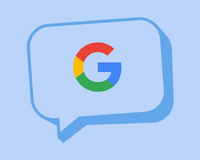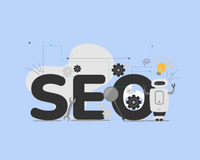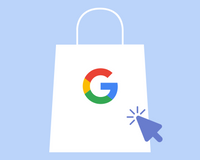By Slater Smith
Does your website have a wealth of content? So much in fact, that you don't know exactly how to organize and optimize it all? Look no further. Welcome to your all-inclusive guide to on-page search engine optimization. Contrary to popular belief, on-page SEO involves much more than simply writing content, including a few keywords, and waiting for your content to rank. In fact, proper on-page SEO requires maximizing the performance of many different components, including text, images, and technical factors. In this detailed blog, we discuss the specifics of on-page SEO and its importance to search engine rankings.
What Is On-Page SEO?
On-page SEO is the process of directly optimizing content and pages on a website to improve their rankings within search engine results pages (SERPs). When you begin researching and discussing on-page SEO, you will likely come across a few popular terms. Before we dive further into the specifics of on-page SEO, let's define these commonly used words and phrases.
Title Tags
A title tag is a HTML tag that allows you to give your webpage a specific title. This title appears in the browser title bar, as well as the SERPs. In fact, your website's title tag is often the first part of your site that user's see when it comes up in the SERPs.
Internal Links
Internal links are links that connect one page of your website to another. These are crawled by search engines and used by site visitors to navigate your site's pages. There are several types of internal links which differ depending on what types of pages they connect to and from. Internal links that appear in content are known as contextual links. The more contextual links an article, page, or site receives, the more credible it appears to search engines.
Images
No one wants to visit a website only to find a wall of indistinguishable text. Sites that are rich in quality images are more attractive to visitors and often rank better in search engine results.
User Experience
User experience informs all aspects of SEO including site design, content creation, and more. SEO is all about maximizing technical optimization of a site without detracting from users' overall experience. Everyone wants their site to rank within the search engine results pages, but they also want users to find their site attractive enough to feel the need to linger and make purchases.
Featured Snippets
Featured snippets are a search engine feature that show up near the top of search engine results. They provide users with quick answers to search queries and are more likely to appear for informational search queries. If you type in "featured snippets SEO," for example, Google will spit out the following featured snippet, with the most relevant text in bold.
If a user makes a search and finds the featured snippet answers his question, he is unlikely to even look at the first result on the search engine pages. In this way, optimizing for featured snippets is quite essential; it allows your product or article to have the first word over all competitors.
On-Page SEO Vs. Technical SEO
Some SEO experts use the terms on-page SEO and technical SEO interchangeably. Although they are similar in many ways, there are a number of significant differences between the two.
As previously mentioned, on-page SEO involves optimizing immediately visible aspects of a website, such as titles, descriptions, and headers. On the contrary, most technical SEO changes happen behind the scenes. Optimizing for technical SEO can include updates to site structure, indexing, and code.
Key Components Of On-Page SEO
The key to improving a page's SEO is including the optimal elements and SEO structure. You wouldn't want to write a detailed blog only to see it fail to rank because its structure is unattractive. In the following paragraphs, we discuss a few of the most essential components of on-page SEO, including page content, page quality, titles, subtitles, and headers.
Page Content And Quality
Being one of your first impressions on visitors and search engines, the content and quality of your pages is at the heart of on-page SEO. This content tells users and search engines what your page is about and indicates the page's potential value. The first step to creating quality content is conducting thorough keyword research to make sure users will find your content within search engines. You can conduct keyword research using an online tool or software. Our talented team here at Zeke SEO would be happy to help you with keyword research as well.
Page Titles And Subtitles
Your websites page titles (also known as title tags) help organize your content and indicate to visitors the specifics of each page. The best title tags are concise, relevant to the page's content, and attractive to potential readers.
Headers
Header tags help organize content for readers and search engine bots. Without adequate headers, your content will appear as one long, run-on body of text, which is unattractive to both readers and search engine bots.
Mobile Friendliness
Ensuring that the pages, images, and format of your website shows up as intended on mobile is essential to SEO performance. In the current age of smart phones, more than half of internet traffic comes from users on mobile devices. Failing to maximize your site's mobile potential can result in the loss of more than half your potential client base.
Many search engines like Google also use mobile friendliness as a ranking component in their search engine algorithm. To do so, many companies focus on making a site as responsive, adaptable, and fast as possible.
How To Evaluate On-Page SEO
Now that we have reviewed the key components of on-page SEO, we can determine a rough on-page SEO score for any site. Advanced SEO tools like Semrush and Ahrefs are helpful in this regard, but may seem too expensive if you're looking for a quick evaluation. If you choose to manually review your site's SEO yourself, try answering the following questions:
- Are you using high volume keywords in your content?
- Does your site load quickly? Or do some pages load quickly while others take forever?
- Have you updated your site's content? Google prioritizes fresh content.
- Is your content structured in a user and search engine friendly manner?
- If you unsure if your content is structured in a user and search engine-friendly way we would be happy to give your site a free evaluation.
Why Is On-Page SEO Important?
Google updates its search engine algorithm as often as twice per day in an effort to improve user experience and access. We don't believe that you need to update your site that often, but regular changes are essential to on-page SEO performance. A site that is optimized for on-page SEO is helps Google understand the page's content and the significance of that content.
1. Improves SEO Rankings
The majority of Google users rarely click beyond the first page of search results when looking for an answer on Google. In fact, studies show that the first result (not just the first page) on Google receives more than 28% of clicks for a certain search term. The closer your page content gets toward the top of Google, the more clicks it is likely to generate. Higher rankings also build brand credibility, positioning your company as one the leading industry experts in the eyes of your readers.
2. On-Page SEO Boosts Crawl Rate
Your content's ability to rank is largely dependent on Google's ability to crawl and index it. Google uses crawling and indexing processes to find, catalog, and determine the value of the content in its archives. On-page optimization helps indicate to Google crawling bots which content is most essential and the value that content brings to site visitors.
3. Attracts More Local Customers
The best on-page SEO tactics improve rankings on both mobile and desktop search result pages. According to Google data, more than 30% of daily searches are made with local intent, usually by users looking for services in their immediate area. These searches often have much higher urgency as well. In fact, more than 2/3 of users who make a local search visit a related local brick-and-mortar store within a day.
4. Local SEO Has High Click-Through Rates
Showing up at the top of search engine results does no good for your business if users are not clicking through to your website. When trying to improve click through rate, you ideally want to find words that will persuade users to learn more. Optimizing your title tags and descriptions can entice Google users to click through to your site more often.
5. Increases Dwell Time
Dwell time refers to the amount of time the average users spends on your site and pages. Users who stay on sites for longer are significantly more likely to make purchases. As demonstrated in the graph below, there is a direct correlation between a site's average dwell time and its position in the Google search result pages. Pages that occupy the first position on organic search results keep visitors on their site for an average of more than eight minutes! This figure begins to taper off quickly. By the time you reach the third or fourth page of search results, you begin to find sites that keep users for mere seconds.
6. On-Page SEO Leads Directly To Sales
Generating high-quality traffic to your website is great. Turning this traffic into tangible sales is even better. When performed properly, on-page SEO motivates users to learn more about your company, and eventually make purchases. Sites that rank higher on search results also see a significant increase in brand authority. This means that prospective customers arrive to your site already considering you one of the industry leaders.
7. On-Page SEO Indicates Content Relevance
Relevance is arguable the most crucial element of on-page SEO. If search engines and users deem your content irrelevant, your chances of ranking become slim-to-none. Google uses content type, relevance, and length as ranking factors in its algorithm. Content that fails to rank despite consistent updating is likely either too short or irrelevant to popular high volume search terms.
Is On-Page SEO More Important Than Off-Page SEO?
In order to maximize your site's exposure and rankings, you need to maximize both on-page SEO and off-page SEO. On-page and off-page SEO work in harmony to drive site traffic and improve search engine results rankings. For example, an article can include all the optimal on-page SEO keywords but fail to rank due to off-page technical mistakes or exclusions.
Many SEO experts refer to off-page, technical SEO as the "backbone" of on-page SEO. Simply put, without off-page SEO, on-page SEO often fails to rank. Conversely, off-page SEO also needs page content in order to function.
In almost all cases, on-page SEO comes second after off-page SEO. Before you can start thinking about how to optimize your site's content, it needs to have an organized, crawlable structure.
Overall
On-page SEO is the process of directly optimizing content and pages on a website improve their rankings within search engine results pages (SERPs). Without proper optimization of your site's pages and content, it will likely fail to rank in search engine results and attract thousands of visitors.





